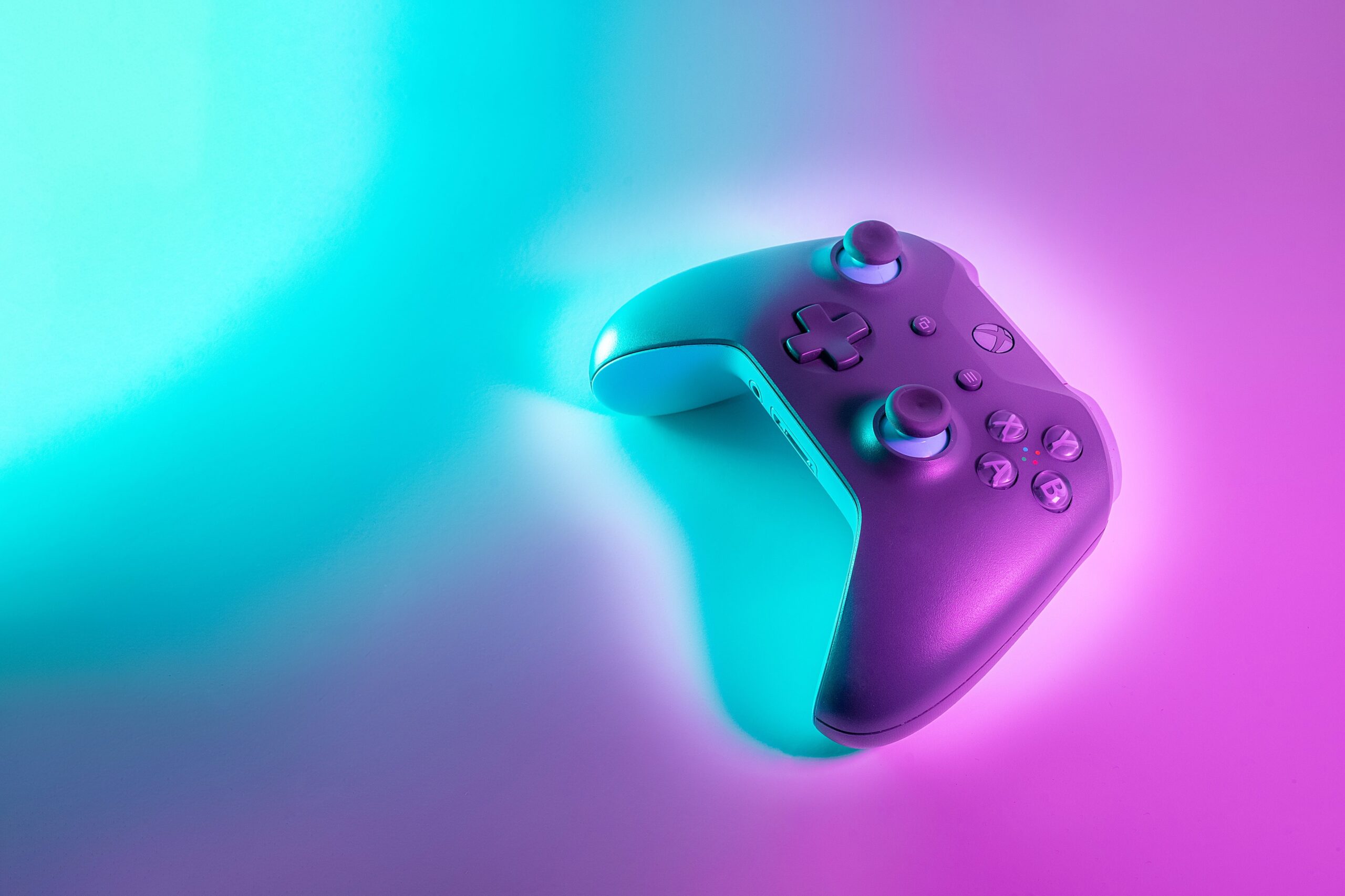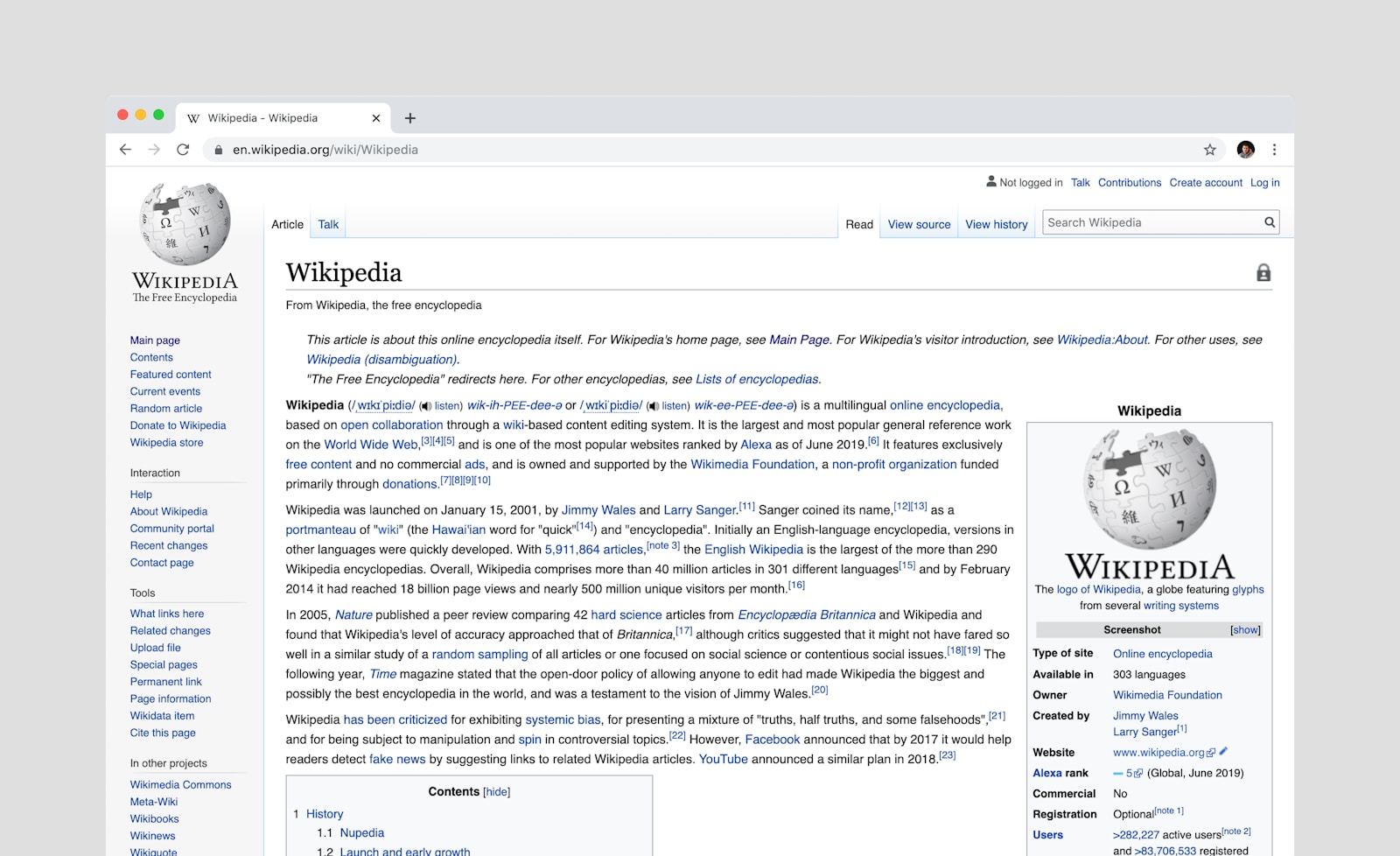Are you looking for innovative ways to enhance your traditional marketing with a whole lot of holiday cheer? With the holiday season just around the corner, now is the perfect time to embrace the power of gamification in marketing..
Over half (53%) of marketers report using some form of interactive content and the results speak for themselves. 88% of marketers say that interactive content is effective in differentiating their brand from their competitors and 66% say they have experienced greater audience engagement as a result
Peek & Poke
If your brand doesn’t provide interactive experiences, you’re sure to be missing out.
Spending Statistics around the Holidays
It’s a well-known fact that big brands splash out to compete for the number one Christmas ad, but the majority of businesses have a much more modest budget to play with. Interestingly, according to data, 23% of consumers use social media to help with their festive shopping, and a whopping 81% of consumers expect to be swayed by holiday promotions.
In 2022 retail specialists predicted that there would be an “inflection point” for channel shift, demanding retailers converge online and physical shopping. So, where is the best place to allocate marketing budget and ensure the best possible ROI?
What is Gamification in Marketing?
Games do have a genuine place in business and marketing. 69% of the UK’s population play games, and the average age of a gamer is 35.
Peek & Poke
Done well, games tap into our need to be challenged, achieve, collaborate and most importantly have fun.
One interactive content format that has been making its way into an increasing amount of marketing plans is branded games.
A benefit of incorporating gamification into your marketing efforts is the ability to create interactive content that brings out the holiday spirit. Imagine engaging your customers with festive-themed games, quizzes, and challenges to get them in the Christmas cheer and build a memorable brand experience.
Benefits of Gamification in Marketing
Games aren’t just entertainment. They’re experiences that engage us and provide our brains with pleasing dopamine hits in a variety of different ways:
- Achievements: Progressing through levels, unlocking exclusive items, collecting points, etc., all create a sense of accomplishment and satisfaction.
- Competition: Games often have a competitive element. Having a prominent and public leaderboard feeds into our competitive nature and satisfies our sense of achievement, too.
- Immersion: Creating an alternate reality, a make-believe world that breaks the constraints of real life, gives us huge pleasure in seeking abilities and traits that are beyond our normal life.
- Cooperation: By creating communities and promoting socialising, games unlock our need to belong to a tribe or group and touch upon the psychological need for affirmation and camaraderie.
- Fun: People play games because they are fun. If the game isn’t fun, people won’t play.
Defining Your Objectives
As with all sales and marketing campaigns, your first step should be to define what you want to achieve from your game and how you’re going to measure success.
- Are you looking to build brand awareness?
- Launch a new product or service?
- Generate sales? Generate new leads?
- Send a Christmas thank-you to employees or suppliers?
Make sure you understand your overall goals before you plan out your strategy. Marketing content designed for lead generation will look different to content created to support a gamified marketing campaign. Plan well in advance for visual content and outsource if resources or skills are limited in-house.
Measuring Success Based on Goals
Setting out your expectations in advance will help you determine a ROO (return on objective) or ROI – whether that’s number of sales, qualified leads or engagement metrics.
Whatever your key objectives, make sure you share them with your game supplier. Different aims and objectives will require different tactics to achieve them, from the type of game to any extra levels or functionality.
- If one of your key objectives is engagement, brand awareness or reach, branded games should be top of your list.
- Leaderboard and competitions based on action can also be fun, especially as an incentive for existing customers and your team.
- Giveaways are key. We already know how they make us feel – sure, we love to play games, but we also love a bit of competition and we all love a chance to win something. This makes having a prize to give away the best motivator for players to engage and part with their precious time and data.
Ensuring ROI: Allocating Budget
Of course, budget allocations will vary based on brand, industry and goals, but it’s clear that having a digital, mobile friendly user experience contributes a huge chunk towards festive sales. Consumers tend to use their phones to shop.
49% of Christmas revenue generated by email came from smartphone users and 64% of sales attributed to social media were also made by smartphone users.
Peek & Poke
So, digital marketing should be a key consideration for your budget allocation.
Make sure you have some budget ring-fenced for any last-minute outsourcing. Whilst it’s useful to keep up with industry trends, take a closer look at what works for your brand.
For example: If email was your top converting channel last Christmas, don’t ignore it this year in favour of the upcoming trends.
Once you’ve worked out your objectives and have an idea of what you need your game to do, it’s time to work out the best solution and find the right partner to help you, and suppliers like Peek & Poke will do this for you.
You have two options to choose from, bespoke development or pre-developed tailored games. The choice between these will depend on your budget, your brand, and your goals.
3 Examples of Gamification Campaigns
Finding ways to implement gamification does not have to cost the earth either. You can integrate gamification within existing marketing strategies.
Below you can find some gamification examples. Remember, the key to a successful gamified campaign is to make it fun, engaging, and aligned with your brand’s values and goals. We asked our friends at Peek & Poke to share some of their favourite examples with us.
55 days of Cheesemas Campaign
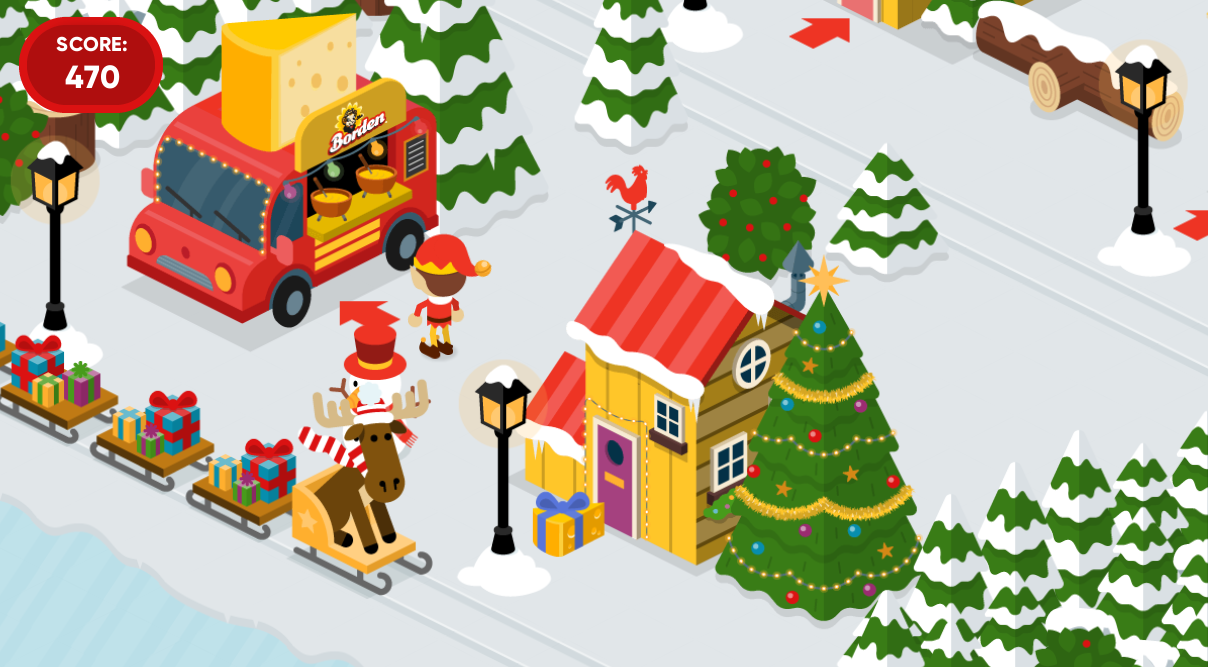
Countdown to Christmas with competitions, special offers and giveaways from Borden Cheese – for all the cheese lovers out there. This was a great opportunity to share product information and giveaways.
- 230,00 games played from 50k players
- 12-minute average engagement time
- 44% marketing opt-in rate!
Rhodar Soccer Skill Shot
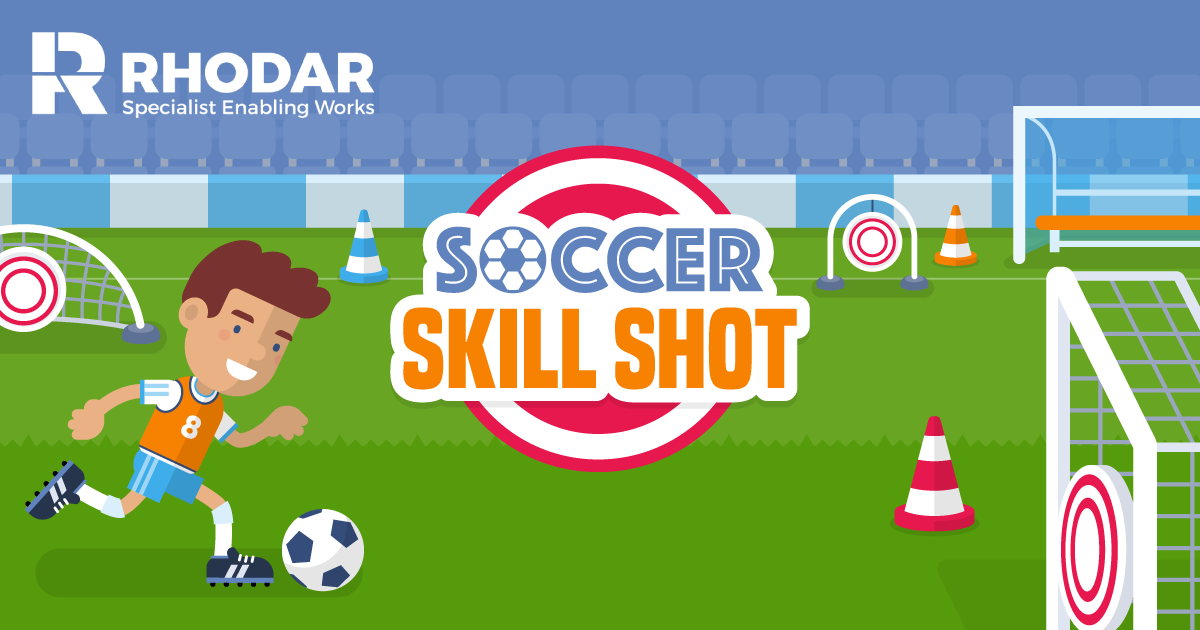
Construction enabling works firm Rhodar , engaged employees and boosted their CSR responsibilities with charity donation prizes up for grabs. This became an opportunity to support the charities close to their employees hearts and deliver engaging and valuable internal comms.
- 7,156 games played from 585 employees.
- 17m 53s average engagement time.
The brand was able to give back through amazing prizes.
- 1st prize (£500) – Crohn’s & Colitis UK
- 2nd prize (£350) – Mind
- 3rd prize (£250) – Chatten Free School
More Jingle, More Bells Campaign

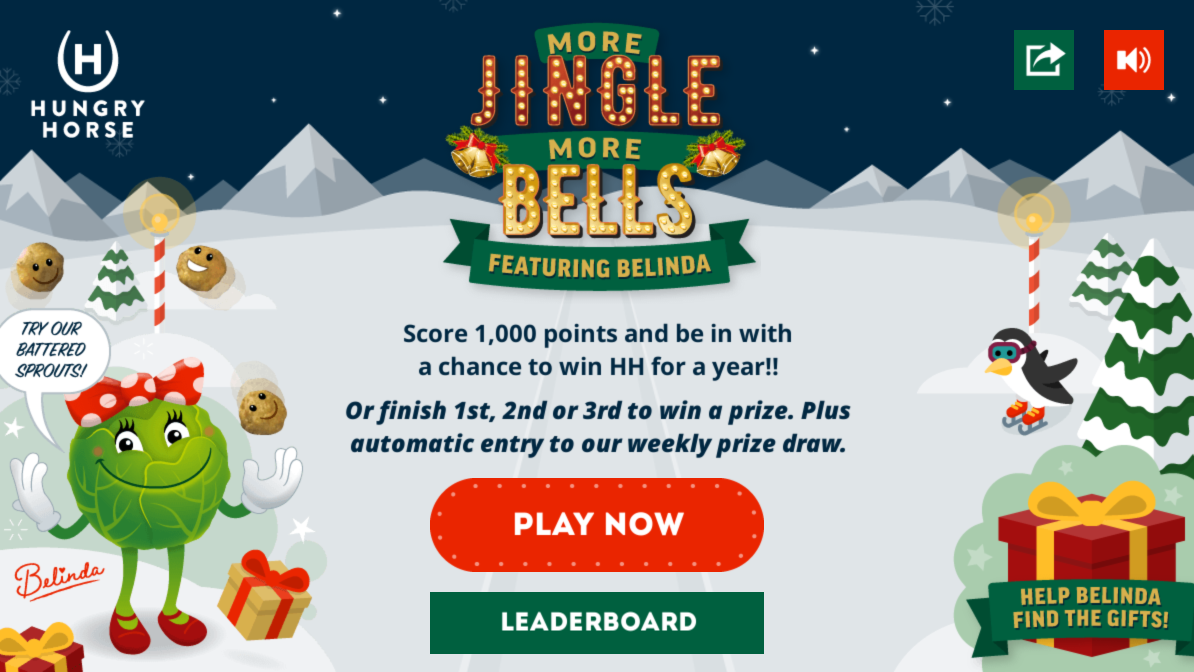
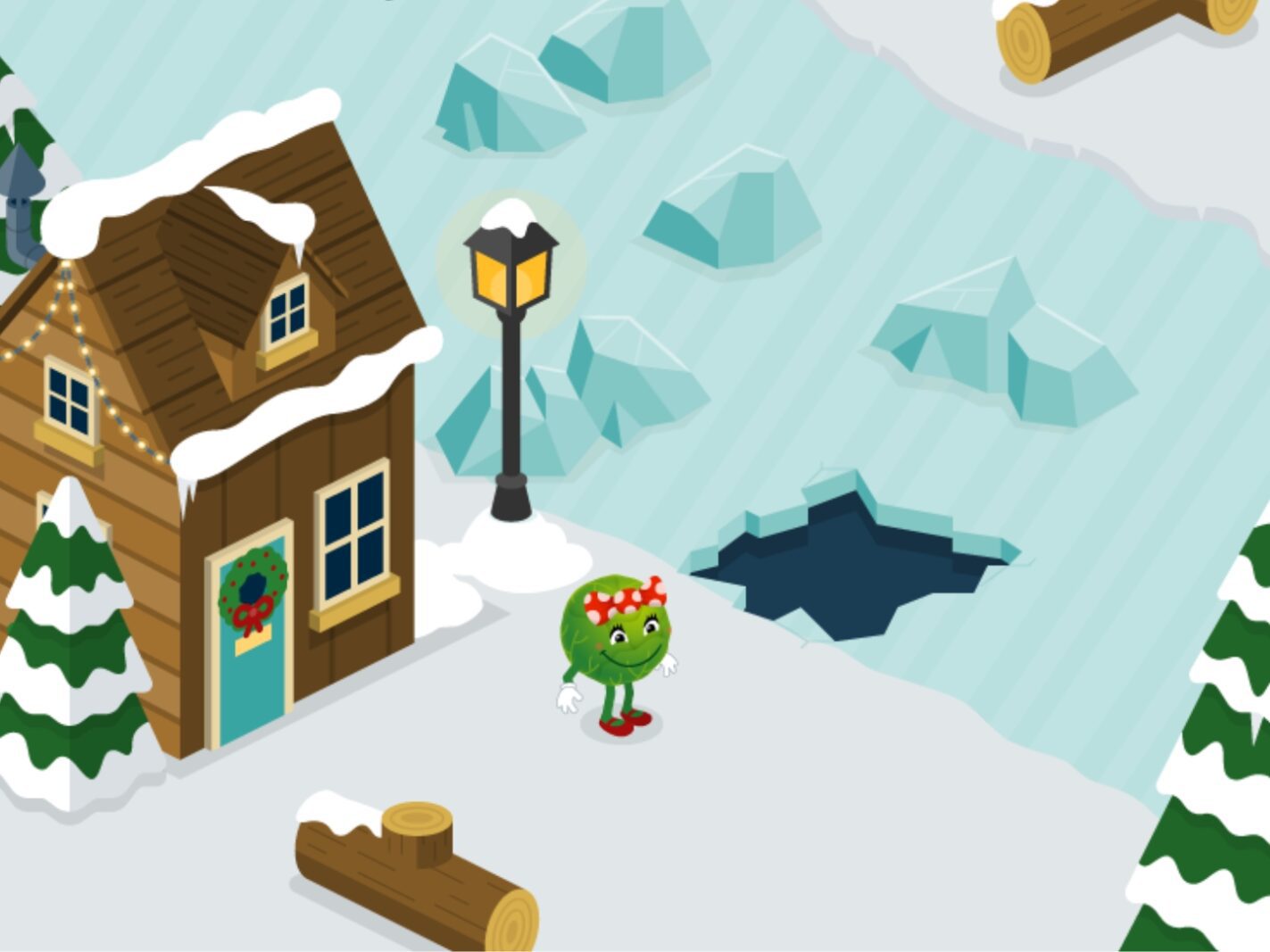
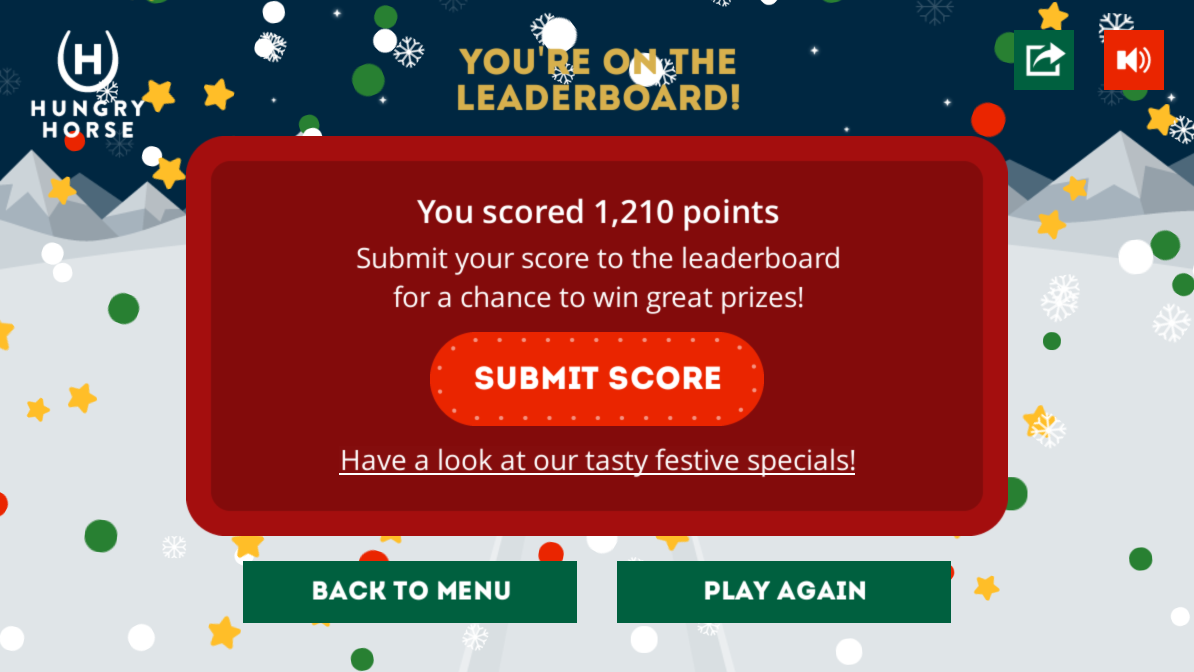
This campaign from Green King was all about building awareness, increasing brand engagement and driving customer acquisition with Belinda the Brussels Sprout.
- Over half a million games were played from 46,121 players.
- 15-minute average engagement time.
- 61% marketing opt-in rate!
How to Implement Gamification
There is a misconception that gamification in marketing has to be complex or needs big budgets. This could be nothing further from the truth! There are so many ways you can start to explore gamification techniques without having to go all in at first. Hopefully these examples can help you decide the best gamification technique for you.
Brand Awareness-Driven Examples
- Branded Games: Encourage your audience to share their achievements with their friends on social media platforms. This can generate word-of-mouth marketing and create a sense of community.
- Contests and Challenges: Create competitions and challenges for your audience to participate in. This can be done through social media platforms or on your website, where participants can earn points or prizes for completing tasks or achieving specific goals.
- Interactive Quizzes and Games: Develop interactive quizzes or games that educate your audience about your products or services while providing an enjoyable experience. Users can earn points or rewards based on their performance.
Customer Experience and Loyalty Programs
- Personalised Recommendations: Use gamification techniques to create personalised recommendations based on customer preferences and behaviours. This can make the experience more interactive and encourage customers to explore new products or services.
- Loyalty Programs: Reward customers for their continued support and engagement with your brand. This can include point systems, badges, and leaderboards to make it more game-like.
- Progress Bars and Levels: Incorporate progress bars or leveling systems to show customers their advancement or status within your brand. Users can complete certain activities or reach specific milestones to unlock new levels or receive rewards.
- Virtual Badges and Achievements: Implement a system where users can earn virtual badges or achievements for completing certain actions or reaching specific milestones. This can create a sense of accomplishment and encourage further engagement.
- Virtual Currency and In-App Purchases: Implement a virtual currency system where loyal customers can earn or purchase credits to unlock exclusive content or features. This can generate additional revenue while enhancing the gaming aspect.
Tips for Success
Remember that regardless of how you approach gamified marketing, it’s not really about you.
Yes, your game should be fun to play for the player. If your branding and marketing objectives are getting in the way of gameplay, you run the risk of it having a negative impact.
- If you’re commissioning a bespoke game, make sure that good gameplay principles are at the forefront of the brief.
- If you’re tailoring a game engine that already exists, be sure to demo it. Play it for yourself and check it’s been proven to be fun, with a good balance between brand integration and gameplay.
In fact, applying gamified marketing goes beyond ROI – and is really an exercise in building trust.
Gamification can help you stand out, creating connections on an emotional level. However, as with all things marketing, it’s just one cog in a larger machine of components that need to work together.
So, as you plan for the festive season, consider integrating a branded game into your marketing strategy. Not only can it boost engagement and brand awareness, but it can also give your customers a fun and interactive experience that they will associate with your brand. And that’s a win-win situation for everyone.
Here’s a little help for your next holiday campaign.
If you’ve been trying to come up with new and exciting ideas to make your Christmas marketing campaign stand out this year, branded games could be just the thing you’re looking for.
Peek & Poke have collated everything we know about creating the best festive marketing game campaign and published it all in this super-duper 50-page guide. They cover budgets, campaign objectives, game promotion, client success stories, and a whole load more: get your copy.
Ready to get started with positive impact marketing?
Set up power marketing systems build a marketing strategy that drives results, when you join our certification.
Develop an advanced set of marketing skills that drive more measurable results to any project and harness the power of psychology, purpose, storytelling, and impact to build trust in an increasingly skeptical world.
Take our certification, build your marketing plan and build your ultimate marketing toolkit.

